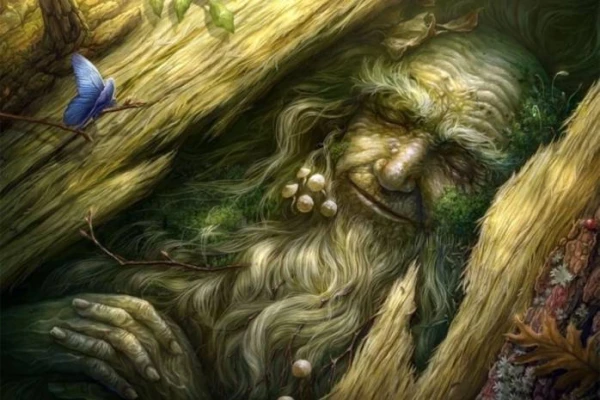
On November 18, Orthodox churches pay tribute to Saint Jonah, who lived in the 15th century and left a significant mark in the history of Orthodoxy through his good deeds. In the folk calendar, this day is known as the Day of Jonah. In the past, girls, hoping to meet worthy suitors, made wishes, while women prepared dishes from radishes.
On November 18, Orthodox believers celebrate the day of Saint Jonah, who was the Archbishop of Novgorod and the abbot of the Oten Monastery. Historical sources indicate that Jonah was orphaned in his youth and was raised by a pious widow. Thanks to her care, he became a righteous man and received the gift of miracle-working.
One of the miracles recorded in Orthodox history was the cessation of a plague that claimed the lives of about 250,000 residents of the Novgorod lands. The disease ended after Jonah made a procession to the Zverin Monastery. The chronicle describing the life of the saint also mentions healings that occurred at his tomb.
The Day of Jonah: Traditions of the Folk Calendar
On the day of Jonah, girls would pray to the saint, asking him for good husbands. Orthodox customs often intertwined with pagan traditions. To find out if their dreams of future partners would come true, girls scattered small items in the yard: coins, pins, beads. This served as a kind of invitation for potential suitors.
According to tradition, girls dreaming of marriage would rise before dawn to perform their rituals before the boys arrived. Young men also did not remain idle and would get up early to walk around the village and peek into the yards where the girls they liked lived. If they saw beads or small change, they could confidently come to propose, knowing that the girl was ready for marriage.
There was a superstition: if a noisy company passed by or a cart rumbled down the street on the day of Jonah, it foretold a wealthy husband. However, if it was quiet by the gate, it could mean that the family would face financial difficulties.
What Can Be Done on the Day of Jonah
At this time, the harvest of radishes was completed, which were valued for their nutritional and taste qualities. Each housewife had her own recipes for preparing dishes from radishes, but generally, the process involved grating the vegetable, salting it, and squeezing out the bitter juice before adding various ingredients.
On the day of Jonah, it was customary to prepare dishes from radishes. If this was not done, one could not expect luck and happiness in the near future.
Many proverbs about radishes have survived in folk culture, many of which are still relevant today. “Lies like planting radishes”; “Bitter is the radish, but they eat it; bitter is marriage, but they go”; “Bitter as a radish”; “Good is the radish, if the fish is not caught”; “Two leaves of cabbage, and a radish tail on Great Lent.”
Radishes indeed helped during fasting periods, becoming a staple dish on the table.
The Day of Jonah: Folk Omens
Our ancestors knew: if it starts to snow on the day of Jonah, the winter will be snowy and frosty, and the winter crops will be good. If by this time ice ridges form on the bodies of water, it foretells a good wheat harvest.
If there is no ice visible on the rivers on the day of Jonah, one should not expect a good harvest. The presence of trees covered in frost indicated an approaching thaw.
The Day of Jonah: What Should Not Be Done
In the past, it was believed that no documents should be signed on the day of Jonah. There was a belief that evil spirits could steal the signature, and the consequences could be dire.
Elders claimed that on this day, one should not purchase large items, as they might turn out to be of poor quality, and the money would not be returned. It was also forbidden to pick up a broom found in the yard or nearby, as this could lead to spoilage.
The find should be taken to a local healer, who would burn it. If this was not done, happiness, money, and love could leave the home.
Omens, beliefs, spells, and prohibitions are important aspects of almost every folk holiday. They contain many pagan motifs. Whether to believe in them or follow them is a matter of personal choice. It is important for us to understand how our ancestors lived, what brought them joy, what saddened them, and what they feared.













Leave a comment